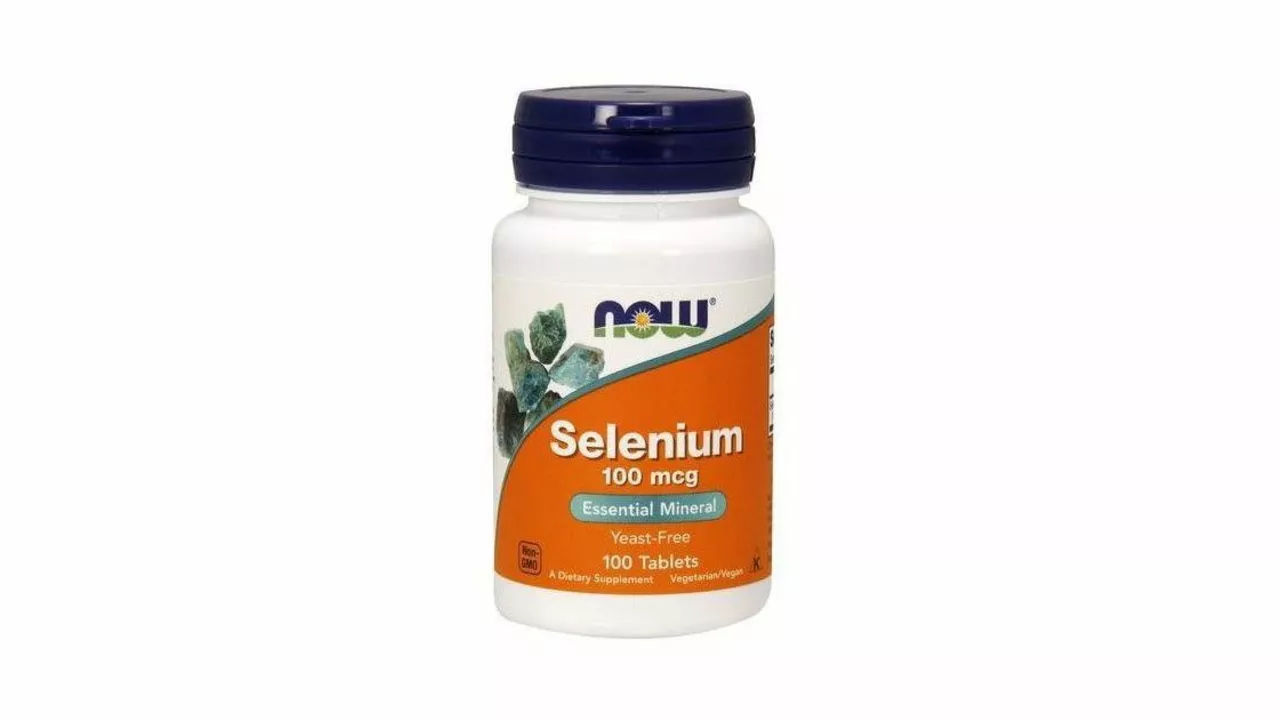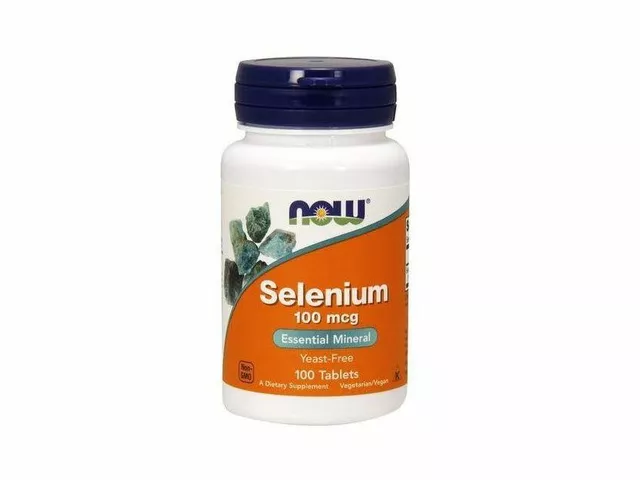Shark Liver Oil: A Nutritional Powerhouse for Better Health and Wellness

Understanding the Origin of Shark Liver Oil
Shark liver oil has been around for centuries, used by the Vikings and fishermen for its numerous health benefits. It's derived from the liver of deep-sea sharks, most commonly harvested from species like the basking and dogfish sharks. These creatures dwell in the cold, deep waters where sunlight hardly reaches. As a result, they produce a significant amount of oil in their liver, rich in vitamin A, omega-3 fatty acids, and alkylglycerols. This oil is extracted and processed into supplements, becoming a nutritional powerhouse for better health and wellness.
Unveiling the Nutrient Composition of Shark Liver Oil
Shark liver oil is packed with nutrients that are essential for our body. It is rich in vitamin A, which is necessary for good vision, a healthy immune system, and cell growth. It also contains omega-3 fatty acids, known for their role in brain health, cardiovascular health, and reducing inflammation. Moreover, this oil is abundant in alkylglycerols, compounds that stimulate the immune system and enhance wound healing. Together, these nutrients make shark liver oil a potent supplement for overall health.
Boosting the Immune System with Shark Liver Oil
One of the most significant benefits of shark liver oil is its ability to enhance our immune system. The alkylglycerols present in the oil stimulate the production of white blood cells, our body's primary line of defense against harmful pathogens. Moreover, vitamin A and omega-3 fatty acids in the oil contribute to immune health by reducing inflammation and promoting the health of immune cells. This way, shark liver oil helps our body to resist diseases and infections.
Enhancing Vision with Shark Liver Oil
Shark liver oil is a rich source of vitamin A, essential for maintaining good vision. This vitamin plays a crucial role in converting light that hits our eye into an electrical signal that can be understood by the brain. Additionally, it helps to keep the cornea (the front of the eye) clear. Omega-3 fatty acids in the oil also contribute to eye health by reducing the risk of age-related macular degeneration and dry eye syndrome. Thus, consumption of shark liver oil can help to protect and enhance our vision.
Shark Liver Oil for Cardiovascular Health
Omega-3 fatty acids in shark liver oil are known for their heart health benefits. They can lower triglycerides, reduce blood pressure, slow the development of plaque in the arteries, and reduce the likelihood of heart attack and stroke. Also, these fatty acids can reduce inflammation, which in turn decreases the risk of heart disease. Therefore, incorporating shark liver oil into your diet can help to maintain a healthy heart.
Role of Shark Liver Oil in Skin Health
Shark liver oil can do wonders for your skin health. Rich in vitamin A and omega-3 fatty acids, it can help to boost skin elasticity, reduce inflammation, and promote healing. Additionally, alkylglycerols in the oil enhance wound healing and tissue repair. By reducing dryness and promoting smooth skin, shark liver oil can help to fight against skin aging and keep your skin looking youthful and healthy.
Shark Liver Oil for Brain Health
The omega-3 fatty acids in shark liver oil have been found to be beneficial for brain health. They can aid in the maintenance of normal brain function, improve memory and concentration, and even reduce the risk of neurodegenerative diseases like Alzheimer's. Moreover, these fatty acids can help to improve mood and reduce symptoms of depression. Hence, taking shark liver oil can support optimal brain health and function.
How to Incorporate Shark Liver Oil into Your Diet
Incorporating shark liver oil into your diet is quite simple. It is commonly available in capsule form, which can be taken with meals. The recommended dosage varies depending on the individual's age, health status, and specific health goals. However, it's always best to consult with a healthcare professional before starting any new supplement regimen.
The Sustainability Aspect of Shark Liver Oil
While the health benefits of shark liver oil are impressive, it's essential to consider the sustainability aspect. The demand for shark liver oil has led to concerns about overfishing and the impact on shark populations. Therefore, it's crucial to choose shark liver oil products that are certified sustainable, ensuring that they are sourced responsibly and do not contribute to the decline of shark populations.






Hey folks 😊, just wanted to point out that shark liver oil has been used historically not just for its nutrient content but also as a source of traditional marine medicine. Modern extraction techniques preserve the alkylglycerols, which are still being studied for immune modulation. If you’re thinking about adding it to your regimen, aim for a product that’s sustainably sourced and third‑party tested. As always, balance it with a varied diet and check with a healthcare provider if you have any conditions.
One must concede that the sesquipedalian allure of shark hepatic lipidomics veritably transcends mere nutritional hype. The confluence of retinoic potency, eicosapentaenoic cascades, and alkylglycerol-mediated immunoglobulin synthesis constitutes a veritable symphony of biochemical virtuosity. Nonetheless, the ontological ramifications of bio‑accumulative contaminants demand scrupulous vigilance. Practitioners should eschew prosaic market facades and procure certifiably sustainable extracts. In sum, the palimpsest of ancient maritime folklore now intersects with contemporary nutrigenomic discourse.
Alright, let me break it down in plain terms because all this hype can get pretty confusing. Shark liver oil is basically a bag of stuff that our bodies kinda need, like vitamin A for seeing in low light and omega‑3s for keeping the brain sharp. The alkylglycerols are the weird‑looking molecules that actually help white blood cells do their job, which is kinda cool if you think about fighting off colds. Most people don’t realize that the oil has been used by fishermen for centuries, so it’s not some brand‑new miracle cure. What’s important is that the oil isn’t just a bunch of fat – it’s a mix of nutrients that work together, sorta like a band playing a song. If you take the capsules with a meal, you’ll get better absorption because the fats help dissolve the fat‑soluble vitamins. Some studies even suggest it might lower triglycerides, which is a win for heart health. On the skin side, people have reported less dryness and faster healing of little cuts, probably because of the anti‑inflammatory effects. Your eyes can also benefit, since vitamin A is a key player in maintaining a healthy retina. There’s also a mental edge: omega‑3s have been linked to better mood and memory, so the oil could give you a subtle boost in focus. But don’t just gulp it down without thinking – quality matters. Look for products that are harvested from sustainably managed fisheries and that have been tested for contaminants like mercury. Overfishing is a real issue, and we don’t want to keep wiping out shark populations for a supplement. If you’re on medication, especially blood thinners, check with your doctor first because the oil can affect clotting. Dosage varies, but most guidelines suggest around 1,000 mg per day, split into two doses. And remember, supplements are just that – they supplement a balanced diet, not replace it. So, if you’re already eating fish, veggies, and nuts, adding a modest amount of shark liver oil can be a solid addition to your wellness routine. In short, it’s a potent, historically backed supplement, but it comes with responsibility and common sense.
Listen up! If you’re not pulling shark liver oil from a certified sustainable source, you’re basically supporting poaching – get serious about your choices.
Wow, that’s a lot of good stuff packed into one little supplement! I’ve actually tried a few capsules and noticed my skin felt less itchy during winter. Definitely worth chatting with your doc if you’re curious, especially if you already take other fish oils.
I agree with the points about sustainability – it’s crucial we back brands that do third‑party testing. The immune‑boosting alkylglycerols are a neat addition to the usual vitamin A and omega‑3 combo. If you decide to try it, start with a low dose and see how your body reacts. Also, keep an eye on any possible fishy aftertaste; some capsules have a coating that helps. Overall, it can be a solid complement to a balanced diet.
Promoting shark liver oil without emphasizing ecological impact is ethically irresponsible.